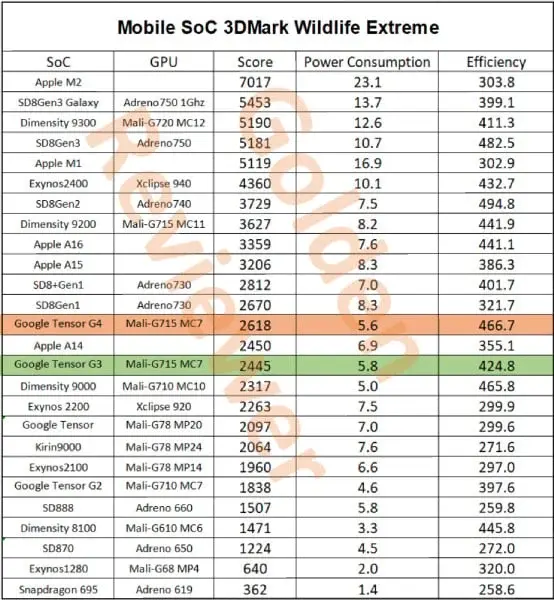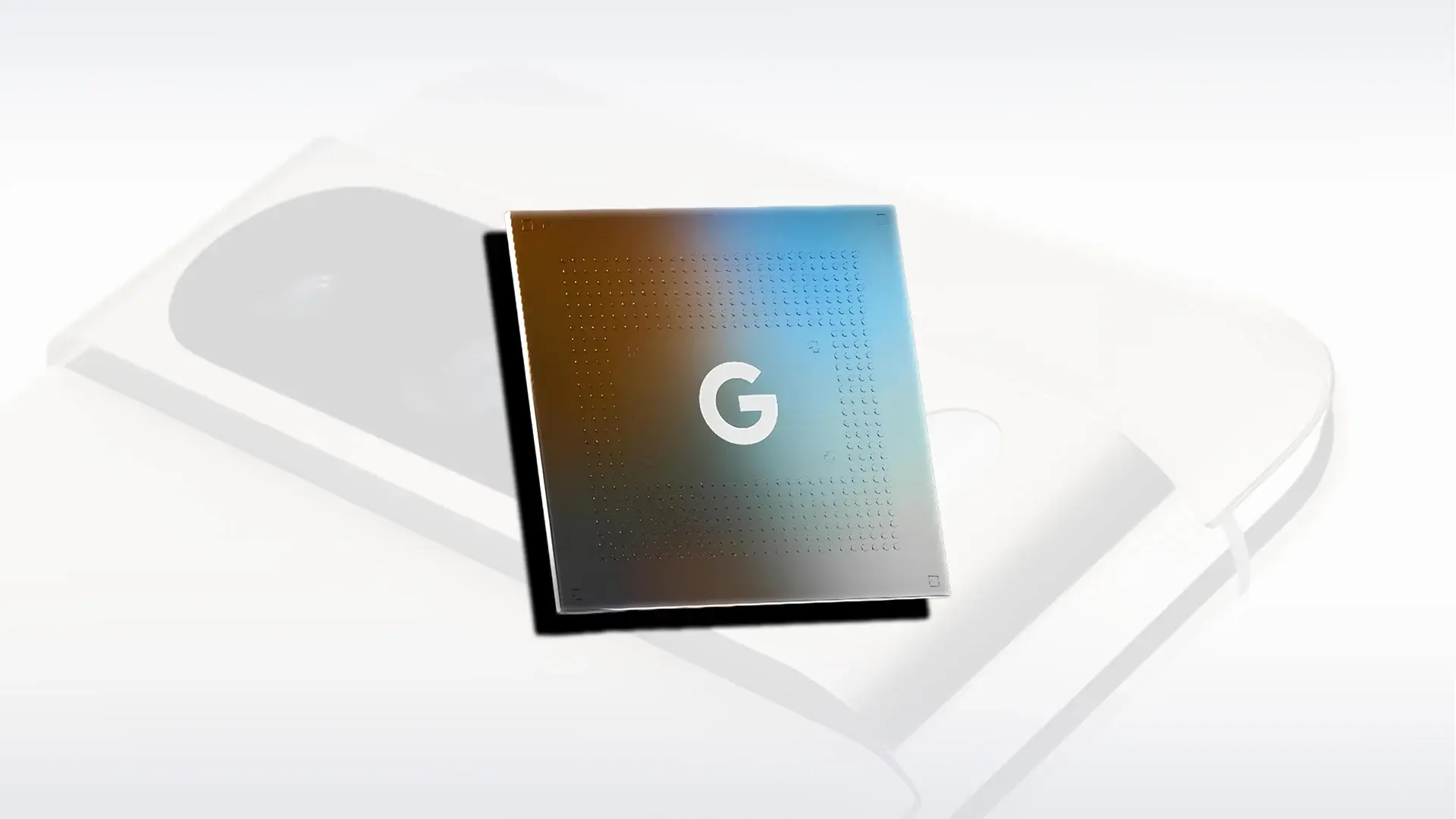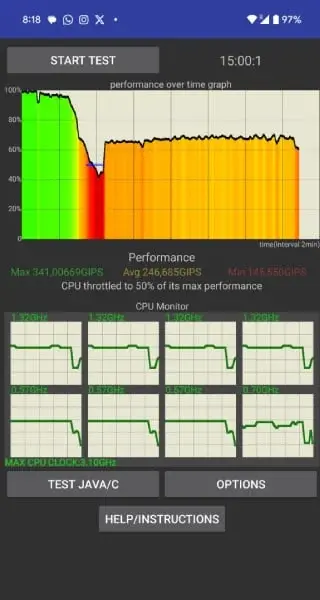Google’s Tensor G4 chip in the Pixel 9 lineup falls short of the high-performance expectations typical for a 2024 flagship device, as seen in preliminary benchmarks.
Recent comparisons highlight that the Tensor G4 struggles to compete with both current and previous flagship processors. It even lags behind the Snapdragon 8 Gen 1, a chip introduced in 2021.
Benchmark Comparison
Golden Reviewer, an independent analyst, tested the Tensor G4 against top flagship chipsets using the demanding 3DMark Wild Life Extreme benchmark.
The findings reveal that the Tensor G4 outperforms its predecessor, the Tensor G3, by a modest margin of just over 7%. Although this indicates some improvement from one generation to the next, the progress is minimal.
More troubling for prospective users is the Tensor G4’s failure to outpace the Snapdragon 8 Gen 1, released in 2021. In fact, the Snapdragon 8 Gen 1 maintains a slight edge of about 2% in the benchmark. This performance gap with a three-year-old chip underscores Google’s lag behind other processors in terms of speed and power.
Performance Disparities
The gap becomes even more evident when comparing the Tensor G4 to the latest Snapdragon 8 Gen 3. Qualcomm’s newest chip achieves scores over 100% higher than the Tensor G4 in the same test.
Nonetheless, Google has clarified its focus for the Tensor G4. The company emphasizes AI capabilities over sheer benchmark performance, aligning with Pixel phones’ strengths in computational photography and on-device AI applications.
Despite the underwhelming benchmark outcomes, there is a silver lining. Google plans to produce its 2025 Tensor chip using TSMC’s advanced 3nm process, moving away from Samsung’s manufacturing. This transition could lead to notable gains in both performance and efficiency. Updates on this development will be closely monitored.
In the meantime, those considering the Pixel 9 series for intensive tasks or gaming may want to explore other alternatives before deciding.





